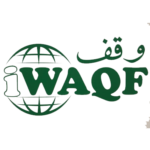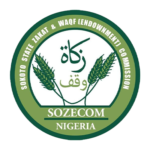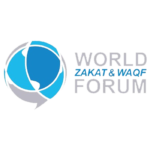Throughout history, philanthropy has played a significant role in the fabric of societies worldwide. In the Islamic tradition, one of the most profound forms of philanthropy is the institution of Waqf. Rooted in the teachings of Islam, Waqf stands as a testament to the enduring spirit of giving and community support. This concept, deeply embedded in the Islamic ethos, holds immense significance and continues to impact societies globally.
Unveiling the Essence of Waqf
Waqf, derived from the Arabic root word ‘waqafa’ meaning ‘to hold’ or ‘to stop,’ refers to the act of endowing property, assets, or wealth to a charitable cause or for the greater benefit of the community. In essence, it involves the permanent dedication of assets, such as land, buildings, financial resources, or other valuables, to serve a philanthropic purpose.
The concept of Waqf has its origins in the early days of Islam, with historical records tracing its roots back to the time of Prophet Muhammad (peace be upon him). The Prophet himself set examples of charitable acts and encouraged his followers to engage in benevolent deeds. Over the centuries, Waqf has evolved and diversified, adapting to various socio-economic contexts, yet retaining its core principles of service and communal support.
The Mechanics of Waqf
The process of creating a Waqf typically involves an individual or a group of individuals, known as the ‘waqif,’ who donates specific assets to a charitable cause. Upon dedication, these assets become ‘waqf properties,’ and the ownership is transferred to the Almighty, ensuring perpetual use for the designated charitable purposes.
The proceeds generated from Waqf properties are utilized to support diverse initiatives, including funding educational institutions, hospitals, mosques, libraries, shelters for the needy, and other community-centric projects. This perpetual charitable model allows for sustainable contributions to society, transcending generations and making a lasting impact on communities.
The Enduring Legacy of Waqf
One of the remarkable aspects of Waqf is its enduring legacy. Once established, a Waqf becomes a perpetual source of good, continuing to benefit communities for centuries. This sustainability ensures a continuous flow of support, addressing societal needs and fostering social welfare in both prosperous and challenging times.
Moreover, Waqf embodies the Islamic principle of Sadaqah Jariyah – an ongoing charity that continues to benefit the donor even after their passing. This idea emphasizes the spiritual significance of giving, with the rewards continuing in the Hereafter, thereby inspiring individuals to engage in acts of philanthropy for everlasting blessings.
Contemporary Relevance and Challenges
In contemporary times, Waqf remains relevant as Muslim communities around the world strive to address modern challenges. However, certain challenges such as legal complexities, mismanagement, inadequate governance, and changing economic landscapes pose hurdles in fully harnessing the potential of Waqf.
Efforts to modernize Waqf management, streamline legal frameworks, promote transparency, and encourage innovative strategies are essential to maximize its impact. Initiatives leveraging technology and collaborative partnerships can enhance the efficiency and effectiveness of Waqf in meeting the evolving needs of societies.
Conclusion
Waqf stands as a testament to the benevolence ingrained in Islamic teachings, exemplifying the profound impact of sustained philanthropy. Its timeless legacy continues to inspire individuals and communities worldwide to contribute to the betterment of society.
In a world facing diverse challenges, the principles of Waqf offer a beacon of hope, emphasizing the power of perpetual giving and communal support. By nurturing and revitalizing this noble tradition, societies can embrace its transformative potential and pave the way for a more equitable and compassionate world.

Awqaf Africa is a prominent organization dedicated to empowering communities across the African continent. Established to foster sustainable development and social welfare, Awqaf Africa focuses on harnessing the potential of endowments (awqaf) to drive positive change. Through strategic initiatives, partnerships, and impactful projects, Awqaf Africa endeavors to address socio-economic challenges and promote prosperity within African societies.
- Choose your favourite cause
- Register to our website !
- Donate the amount you like
- Stay tuned about cause






There is a subtle depth in your writing, where every word and phrase contributes to a layered whole, allowing the reader to experience intellectual engagement, emotional resonance, and contemplative insight simultaneously.